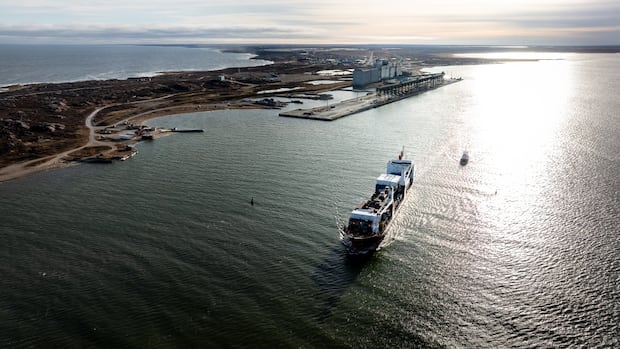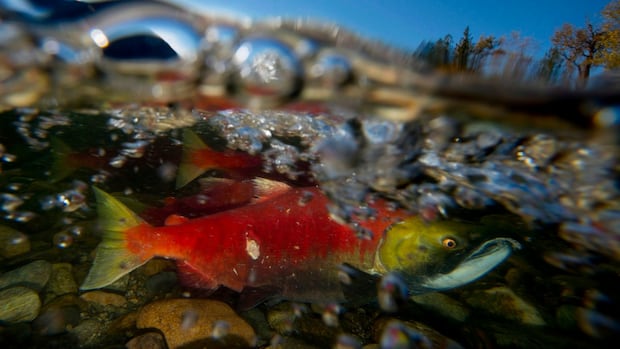Viewed from a certain angle, it could be read as good news that only 30 per cent of Albertans believe their province would be better off on its own, a share that has grown only slightly over the last five years. In a hypothetical referendum, just 28 per cent said they would vote to secede.
But among those who believe Alberta would be better off outside of Canada, feelings have seemingly hardened. And a referendum is no longer purely hypothetical.
“What I always tell [people outside Alberta] is like, hey, Alberta has been a place of western alienation for a long time, and that’s been worthy of resolving for a long time. What you’re seeing right now is it getting louder and being more legitimized than it’s ever been,” says Corey Hogan, the newly elected Liberal MP for Calgary Confederation.
“I’ve worked in the public opinion space a long time. And ultimately, public opinion does follow the conversation. That’s just a simple reality. And so we’re at this moment right now where the conversation has shifted. Public opinion will shift if we don’t get on top of this. And we need to take this very seriously.”
Hogan, a former political consultant who then worked as a deputy minister in both Rachel Notley’s Alberta NDP and Jason Kenney’s UCP governments, compares the conversation in Alberta about separation now to public opinion a decade ago on a carbon tax in that province. Initially, most Albertans didn’t feel strongly one way or the other. But the debate was ultimately driven by the loudest and most polarized voices.
When Hogan says the conversation about Alberta has shifted, he says he is “referring to the fact that being a separatist is now a thing people say at cocktail parties in Alberta.”
Mark Carney has named Ontario Liberal MP Tim Hodgson the new federal minister of energy. The CBC’s Acton Clarkin has more on how Hodgson could set a new course for Alberta’s relationship with Ottawa over natural resources.
At least in Hogan’s adult life — he’s 44 years old — he had not previously encountered such party chatter.
“So you are starting to see a social acceptability to the idea of being an Alberta separatist that honestly, I find a little baffling, but I also find very concerning,” he said.
Holding the country together has always been one of the primary tasks of a Canadian prime minister. But given the cocktail chatter, it is fair to say that responsibility may weigh heavier on Mark Carney than it has on any prime minister since Jean Chrétien.
Can Carney rebuild the relationship?
It is too easy to blame Carney’s predecessor for separatist sentiments in Alberta. The roots of western alienation are deep — Mary Janigan’s 2013 book Let the Eastern Bastards Freeze in the Dark takes its title from an iconic bumper sticker of the 1970s, but actually focuses on a federal-provincial conference in 1918 — and can’t solely be pinned on the federal government. Hogan, for instance, points to the general dominance of voices from Central Canada in the public discussion of politics in this country.
It’s also not hard to build an argument that the criticism heaped on Justin Trudeau as an alleged opponent of the province’s oil and gas industry is undeserved — the purchase and completion of the Trans Mountain pipeline expansion (TMX) was not cheap, either practically or politically, and oil production reached a record high in 2024. (If Trudeau was anti-oil, he was at least not very good at it.)
But in Calgary, Hogan argues, the federal purchase of TMX is not understood as an example of the federal government acting for the benefit of Alberta, but as an example of regulatory failure and capital flight. And while some voices in Alberta might unfairly latch on to federal climate initiatives as grounds for complaint, Hogan says, a policy like the government’s clean electricity regulations could be viewed as putting a heavier burden on western provinces.
Carney is eventually going to be tested by the same sorts of policy questions that bedevilled the Trudeau government. If it was easy to square the circle on climate and resource policy to the satisfaction of everyone, someone would have done it already.
For now, Hogan suggests there needs to be an emphasis on relationship-building.
“Alberta and Central Canada — basically, we end up in this loop with each other where we’re almost saying to each other, why won’t you show some gratitude? And we’re not having actual real conversations with individuals,” Hogan says.
“Alberta [will say] why won’t you acknowledge how much money comes from this province.… And then people out here might say, well, we built you a pipeline, why aren’t you happy? And the reality is, neither side is going to be happy if they’re just [talking about] things that they had to begrudgingly do for each other. That’s not how a nation is built.”
Alberta Premier Danielle Smith tells Power & Politics she found Prime Minister Mark Carney’s comments on a possible northwestern pipeline ‘very encouraging’ and a ‘sea change’ from where first ministers’ discussions on energy projects were six months ago.
Hogan says he was “pretty heartened” by Natural Resources Minister Tim Hodgson’s recent trip to Calgary, not so much for the well-received speech the minister delivered, but for the meetings Hodgson had with executives and industry groups in Alberta. (Hogan has since been named a parliamentary secretary to Hodgson.)
“He built those connections and he heard them out. And I think that’s got to be done a hundred more times, right? It’s not about inviting Albertans into the room. It’s about taking the room to Albertans in some cases and saying, ‘OK, what are we trying to do here? How are we going to make this nation work for everybody?'”
That does not mean, Hogan adds, that the federal government should acquiesce to every concern. But building up trust and goodwill might at least make it easier to live with disagreements.
Being a voice for Confederation
Trudeau and members of his government would likely protest that they too made good-faith efforts to build trust between themselves and leaders in Alberta. Trudeau himself seemed determined, at least initially, to shake off the ghost of his father’s reputation in Alberta (though Hogan argues that after Trudeau’s first three years as prime minister, a certain “bunker mentality” set in).
Regardless of how or why Trudeau’s time in office didn’t produce better feelings in Alberta, Carney’s arrival is at least an opportunity to reset the relationship and start fresh — and Alberta Premier Danielle Smith’s positive tone after last week’s first ministers’ meeting suggests there is at least an opening for progress.
In terms of the broader conversation, Hogan could be a potentially valuable voice — for both the Liberals and the broader federalist cause.
Though something of an accidental candidate — he only decided to run after the Liberal Party’s original candidate in Calgary Confederation was forced to withdraw in late March — he is a former vice-president at the University of Calgary and a prominent political commentator (in addition to his experience in government). His campaign printed up signs that said “Confederation is worth fighting for” and he has used his own newsletter to directly challenge some of the arguments been advanced by would-be separatists.
“We can’t cede the conversation space. We need to be in the conversation,” Hogan says of Albertans who like him oppose separation. “If we love this country, we need to fight for this country. And Albertans love this country, so it’s time to stand up.”
Success, he says, would mean that some of the loudest voices on the other side are “less loud,” but also “a broader appreciation that we do have a challenge as a nation and that the idea of sovereignist threats does not end at the Quebec border … that this is a country that needs to make sure it’s investing in a sense of nation-ness.”








